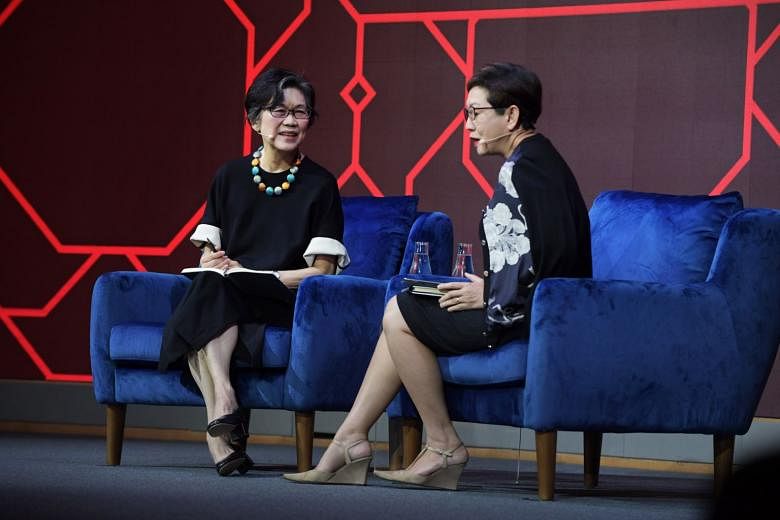SINGAPORE - The United States and China do not understand each other, despite the many strategic dialogues that have taken place between their stakeholders over the years, said Professor Chan Heng Chee at a conference on Thursday (Nov 7).
"I have to say the United States is autistic, and China is autistic, on the world stage," she said, referencing political scientist Edward Luttwak's concept of "great state autism".
Citing China and the US, she said they do not understand the impact they have on each other.
Prof Chan, Ambassador-at-Large with the Foreign Affairs Ministry and formerly Singapore's long-time ambassador to the United States, pointed to several areas where they show a lack of understanding of each other.
China does not understand the Americans have changed and become less generous, that President Donald Trump is not an aberration but a trend, and that the United States is not a declining power.
The US, on the other hand, does not understand China's rise and that it is a Leninist state.
Speaking at the annual Swell conference organised by global payments company Ripple, she said today's Republicans are angry. "Many feel they have lost out, and they are against globalisation."
Also, today's Americans are less generous and do not want to be on the losing end, she added.
The change, however, did not happen overnight, she said, adding that it was understood and channelled by President Trump, whom she said is not an aberration but a trend.
"America is less likely to be the policeman around the world. They will pick their wars, and they don't have to be everywhere, and I think that is now seen more clearly in (the) 'America First' (mentality) defined by President Trump," Prof Chan said.
She made the point when responding to the dialogue's moderator Jennifer Lewis, an adviser at Singapore sovereign wealth fund GIC, who had asked what the US and China need to do to understand each other amid the trade tensions between them.
On the state of US power, she pointed out that China, as well as other countries, thought that America was in decline following such issues as the Iraq war and the financial recession.
But the US economy has bounced back and shown more resilience than others anticipated, she said at a session of the two-day conference at Capella Singapore hotel in Sentosa. Topics discussed at the conference, which ends on Friday, include the use of blockchain and digital asset technologies for efficient global payments solutions.
As for the US, Prof Chan said: "America does not understand China's rise, and that China wants to rise, and feels it has a right to rise.
"And countries in Asia will not stop China from rising, China has the right to be a great power, but we want China to play by (international) rules."
The US also does not seem to get that China is a Leninist state, she added.
"It was thought with this openness and (foreign investments in the country), China would liberalise and change and move (onto) the democratic track. But China did not," she said.
She described three scenarios which could unfold in the wake of ongoing US-China trade tensions.
These are: a Cold War, which she considers unlikely because the world has changed and the US would not be able to "line up countries to join them in containment"; a technology containment, which is happening but also getting pushback from the likes of semiconductor companies and universities; and competitive co-existence, which she said is a scenario which is "not talked about very much now but some of us hope will happen".
She added: "It is (about) the two systems being able to live with each other... it's co-existence, it's competitive, but you don't try to finish the other off."
Prof Chan also talked about Singapore's position in the global economy, and how countries do not want to be forced to choose between the US and China.
She feels South-east Asian countries are for Asean despite differences of views and nuances.
"I think all of them are trying to find a space that allows them to be themselves and have choice... and see who is helping them most (and) when it gets too much, they will look elsewhere," she said.
Another speaker at the conference was DBS Bank chief executive Piyush Gupta, who described the bank's digital transformation journey.
He outlined its mindset change and the lessons it drew on from large tech companies such as Amazon, Google and Alibaba, citing how DBS started to adopt a customer-centric rather than product-centric approach.


